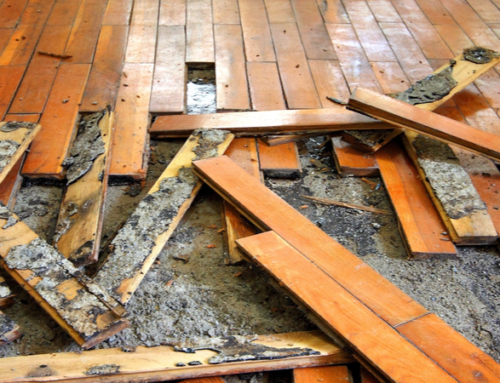Q: We purchased a 5 1/2 year old home in January. Our Realtor was told that the home was not being lived in regularly because the owner was caring for an elderly family member.
About 6 weeks after we closed on the purchase, the septic system drain field began leaching liquid into the back yard. After having a reputable firm pump the tanks, it was determined that the septic system was in proper working order, but the soil was not capable of supporting a drain field.
The local Health Department confirmed that the soil was not suitable for a drain field, tested and confirmed that the soil did not perk, and issued a letter of non-compliance requiring us to bring the system into compliance. The letter also stated that the drain field problem likely existed for many months.
We are now in the process of hiring a soil engineer to determine what alternative system will bring us into compliance. So far, it appears an alternative system will cost about $20,000.
My question is where do we begin? It appears that the homeowner was aware of the problem. A local health department environmental specialist had inspected the site before the home was built and approved the site and plans for an in-ground septic system. This person is no longer employed by the health department.
I have since found our problem is not isolated and this individual’s name is associated with many problems like ours. The same department he was in has now determined that soil does not percolate and never would have.
As required by city ordinance, and as a condition of purchase, a company hired by the sellers certified to us that there were no visual signs of a septic system problem in January 2006. But the health department has stated that there were signs in the terrain that a firm in the industry should have identified as a problem and not approved the septic system.
The purchase price of the home is much higher than market value given the hidden problem. We now own a home that we would not have considered buying had we known that the soil did not percolate.
The safeguards put in place by the state clearly failed on many levels. We are now left with the results. Any guidance you can provide is appreciated.
A: You sure did find out that the systems sometimes does not work and in a big way.
The first thing you should do is to put together a series of estimates of what it will take to fix the problem with the sewer system to the home.
After that, talk to an attorney about your options. If you live in a state that has enacted a “seller disclosure” law that would have required that the seller disclose the septic system problems to you before you signed a contract for the home, you may have a right to sue the seller and recover your expenses in fixing the system.
In some states, if you have to sue the seller for a failure to disclose a material issue that should have been disclosed to you, you may also be entitled to recover your costs of suing the seller for a recovery. You should act fast as you want to make sure you can still find the seller and that he has not taken any actions that would impair your ability to recover from him or her.
Next, if the septic company failed to live up to the standards in the industry in inspecting the system, you may have a claim against that company for your damages. If the inspection company truly failed to do a proper inspection, they may be held accountable for their mistake. Some home inspectors and other professionals that service home buyers have recently started having buyers sign documents that would limit the liability of the home inspector or other professional for their mistakes.
Even if you signed such a statement, if the performance of the company was so negligent, you might still prevail. A company should not be able to hide behind the veil of a limitation in a document when the fail in their basic duties to you as a consumer.
If the inspection company performed an inspection but missed some of the clues, they may not have been a good inspection company and you may have difficulty recovering any damages from them.
You’ll have a better understanding of your legal options after you sit down with an attorney. It’s possible that the seller and the inspection company will accept responsibility for these issues and negotiate a settlement with you prior to your suing them.




Leave A Comment